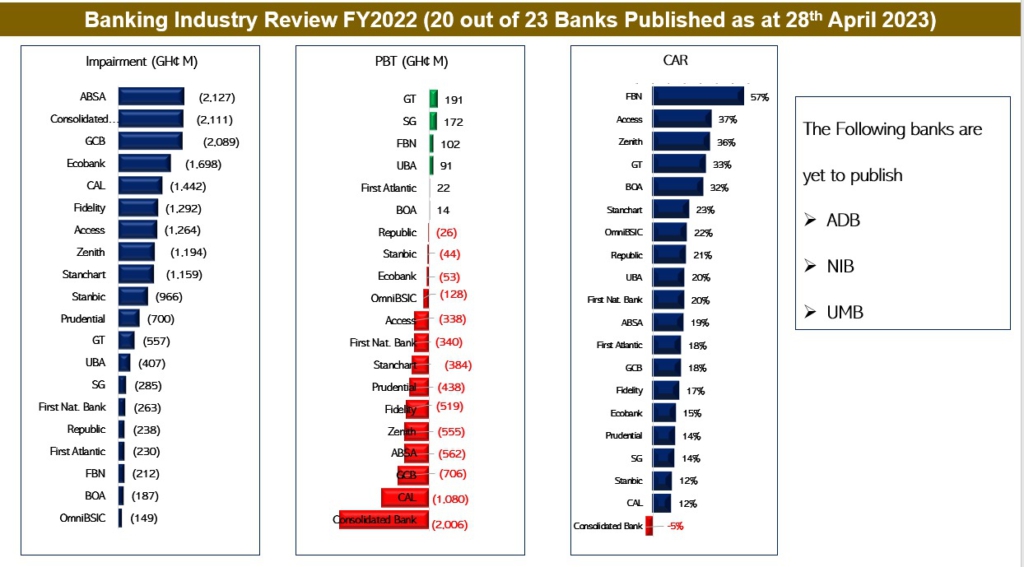15 out of 21 banks that have released their 2022 Audited Financial Statement registered losses last year.
This record losses is as a result of a difficult economic environment that triggered the Domestic Debt Exchange Programme or debt restructuring, impacting negatively on the operations of the financial institutions.
According to their 2022 Summary Financial Statements, most of the banks’ assets were impaired due to reduced coupon rate and the extension of the maturity period from five to 15 years, among others.
Consolidated Bank was the biggest casualty, recording about ¢2 billion loss in 2022. Indeed, the local banks were the biggest losers.
But the financial intermediaries have recovered swiftly in quarter one 2023, recording some good profits.
In 2022, the six banks that recorded profit (PBT) included GT Bank (¢191m), Societe Generale (¢172m), FBN Nigeria (¢102m) and UBA (¢91m).

For impaired assets, Absa Bank was the biggest casualty, writing off ¢2.12 billion. It was followed by Consolidated Bank and GCB Bank which also wrote off ¢2.11 and ¢2.08 billion respectively.
FBN Nigeria (¢212 million), Bank of Africa (¢187 million) and Omni BSIC (¢149 million), however, were the least affected.
With regard to the Capital Adequacy Ratio, which is a key financial soundness indicator, Consolidated Bank (-5%) fell far below the industry threshold of 10%.
FBN Nigeria, Access and GT Bank, however, recorded the largest Capital Adequacy Ratio of 57%, 37% and 36% respectively in the banking industry.
Meanwhile, NIB and UMB are the banks that are yet to release their 2022 Financial Statement.
Joy Business had earlier reported that banks in Ghana lost about ¢15 billion in 2022 due to the Domestic Debt Exchange Programme.





